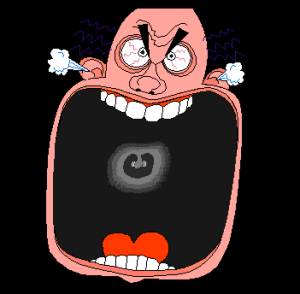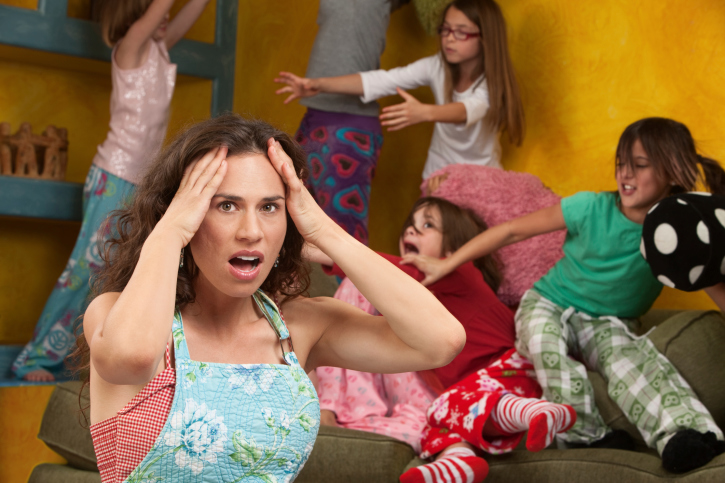It’s so normal to have your buttons pushed and feel angry on the journey of parenting – especially in the demanding early years. I will focus on those early years here, but the information may be more widely applicable too.
This article follows my article How to Healthily Relate to Anger which includes a brain/body perspective, as well as practical “how to’s”.
Anger as an opportunity??
Before you click away because you don’t have a “problem” with anger hear this: we have many golden opportunities as parents to model how to feel and express a wide range of normal healthy emotions.
Anger is an emotion that typically is either repressed or channeled into an explosion. Learning to express anger in healthy ways that create connection and positive change requires inner transformation and healing. By doing this work ourselves we can help make the next generation emotionally healthier than the last. This in turn creates positive change at a societal level. What an opportunity!
And yes, if anger on it’s own is a stigma in our society, then anger and parenting is even more of one. Even mentioning “anger” and “parenting” together probably makes you freeze or think “no, not me”, or react in some way inside. Maybe you conjure up images of an abusive angry Dad yelling and hitting poor Johnny. Yes, unfortunately that exists, and those situations require extra and urgent help (see resources below). But most of the anger around us, and that we experience, is not that. “In fact, anger seems to be followed by aggression only about 10% of the time, and lots of aggression occurs without any anger,” notes Howard Kassinove, PhD. By desperately not wanting to be seen as being angry, we may miss exploring it in us at all.

It doesn’t have to look like this. And it rarely does according to the APA. (forgive the gender stereotyping)
Feeling angry is normal, especially as a parent
Parenting is stressful! Incase you need any affirmation why this is so:
-
Sleep deprivation (or interruption) reduces your ability to cope with stress.
-
The constant “on-ness” of parenting is inherently stressful. Our limits are pushed. The feeling of anger signals that to us.
-
Less-than-realistic expectations lead to not accepting feelings as normal responses (“shouldn’t this be easier?” “shouldn’t I feel more relaxed?” “why do I get frustrated when I know better?”). When we don’t want to feel the way we’re feeling, the resistance creates more stress.
-
The new-ness and steep learning curve of parenting infants and toddlers is destabilising – you’re used to knowing how to operate in the world!
-
The vulnerability of being a new parent in public with the risk of judgement from others adds stress and raises expectations.
-
“What happened to my life?” – a major life transition just happened and there is hardly any time to process it.
-
Adjustment of roles and relationship with your partner (if you have one) are not always easy.
-
The practical impossibility of single parenting (if you don’t).
-
Infants are totally dependent on you. In addition they can cry a lot and sometimes you can’t do much about it – that’s stressful.
-
One of toddlers’ raison d’etre is to test you to see where the boundaries are.
- Couple these things with having a lower income, facing social barriers and having low social supports and it’s another world of stress. There’s serious social inequality and injustice here and that should get us all angry so we can change it.
I speak of all this from my particular cultural locale. I want to acknowledge that parenting experiences and what is considered stressful vary so much across cultures. What works in different families is so different too.
That said, all of this combined with tricky parts of your own unique situation and history can create a bit of a mess! We each deal with stress in different ways, but a lot of it can make us more susceptible to reacting in anger. Yet feeling angry and acting anger out (or in) in hurtful ways are very different. We have choices.
Anger is a flag
Amidst the enormous changes of roles and relationships inherent in early parenting, anger can be a helpful sign that something’s not working and needs changing. It could be a sign that you:
- are taking on too much
- need to get some more help
- want more power, control or appreciation
- need to address something with your partner or family member
- need to get clearer on your boundaries with your testing toddler
- need to prioritise yourself a bit more
- need to learn/be reminded about realistic expectations of infants/toddlers/self as parent (see below)
“When you look at everyday episodes of anger as opposed to more dramatic ones, the results are usually positive,” says James Averill, PhD
Anger can be healthily expressed and lead to positive outcomes for you and your family. I will explore how in a subsquent section.
Different faces of anger
As humans we’re not perfect and neither are we, or our kids, meant to be. Sometimes we lash out in anger unhelpfully and sometimes we don’t get angry when it was actually appropriate. No big deal.
But if these tendencies become more ingrained, it is going to cause problems.
If you tend not to express your anger and frustration in ways that move towards solutions and understanding, typically it goes in 1 of 2 directions. And just because hiding anger is seen as better than constantly expressing it; it is no more functional or healthy.
| Internalised anger | Externalised anger | |
| passive aggressive behaviour | act out agressively | |
| make harsh indirect comments | shout at people | |
| hold resentments | feel regret, shame, guilt | |
| feel inwardly out of control but hold it in, or feel numb until later | feel out of control during outburst | |
| over-controlling behaviours/inappropriate teasing | ||
| feel emotionally stuck and disconnected | ||
| Effects: | ||
| feel disempowered | sever relationships | |
| feel anxious | feel anxious | |
| high blood pressure | high blood pressure | |
| get depressed | ||
| health issues: high blood pressure, (other health risks) | health issues: high blood pressure, (other health risks) | |
| tendency to smoke/drink/be workaholic | tendency to smoke/drink/be workaholic |
Personally speaking
Before I had a child: I really only felt angry if I was almost killed on my bicycle by a car driver, or at world news that felt so out of my control. In my early 20s one friend remarked on how I never seemed to get angry. I wondered what was wrong!
After I had a child: I now experienced a whole new side of myself.  Intolerance, frustration, BIG explosive feelings inside – familiar to me from my Dad growing up. Yikes.
Intolerance, frustration, BIG explosive feelings inside – familiar to me from my Dad growing up. Yikes.
I did things I didn’t like at all. I got to points way beyond my comfort zone. For example after trying to get my 1 yr old to sleep for hours in the middle of the night, I just lost it – huge feelings of anger surged in me and I started hitting my head with my fist and yelling, then hitting the bed with my fist, as my tot continued crying in his crib next to me. I passed the situation to my trusty husband and went out to punch some ground. So, yes, definitely at times not the parent I wanted to be. But so common. And so not talked about.
How to manage anger as a parent – some ideas
Stage 1. Identifying causes – what leads to the anger?
For me this was mostly sleep deprivation, the stress of multiple life changes at the same time, and inadequate self-care time. It also included not being sure what approach to take regarding helping my baby sleep. I was not feeling confident as a new mom and felt that it should be easier. The self judgement and inevitable comparison with other moms didn’t help much.
What builds anger in you? I suggest exploring your early experience with anger too – see my article for some guidance.
Stage 2. What do you need?
For me, if my anger/stress keeps up over days, I’ll add more exercise and alone time (where I write and do art or some Focusing) to my days. Even 30-60 mins of tuning-in time helps me re-set and clear whatever’s been stressing me out. I love Focusing for this. It’s also critical for me to share my feelings with my partner. He knows how to listen and he’s able to be with me and my feelings. Then he can be helpful too in encouraging me to make space for what I need to regain some peace of mind.
What helps you? Can you speak your mind respectfully? What are your ideas about support vs doing it yourself? Do you have enough support? What about child care? Childcare I reckon is part of the supposed “village” that’s meant to help raise children. If you can’t pay for much consider reaching out to find a few other local moms to childcare share (or “tot-swap”) with.
Learning realistic expectations of our children
Knowing what is normal and developmentally-appropriate for our children can be very helpful. Be careful about the sources you read. Some websites, even government-run ones, make it sound a lot easier than it is. The COPE program and other parenting courses/groups can be very helpful – both for hearing others’ experiences honestly (in a way you don’t at the playground) and developing skills. Search here for courses in your area. Also see Hamilton Best Start.
Realistic expectations of yourself
Some parents have an easier go of it than others. Finding moms you feel comfortable to open up to, including moms of older kids who you can relate to, can make you feel more normal. Check out Mama Me – my group running Fall 2015.
Recreating your life
Part of the (also unspoken about) process is recreating the new you. Your former life is gone, sometimes beyond recognition. The things you liked, the roles you played (work, hobbies etc), the relationship with your partner if you have one, how much sex you had, the kind of sex you had, your sense of attractiveness, your fears and joys, and your relationship with the outside world. All this has likely changed. This typically changes more for women than men. Sometimes this dichotomy can create distance in relationships.
This process can involve grieving certain losses and making space for dreaming about what kind of person you want to grow into as a parent and what you and your partner envisage going forward as well.
How to manage anger: in the moment
Check out some practical tools in my article on anger. Here are some suggestions if you burst out in anger in front of your child.
1) Calm down as quickly as you can / If possible put someone else in charge and go take a break.
2) Apologise. Take responsibility for your actions. It’s important to say, “I’m sorry for (…shouting/hitting etc), I felt angry, but it’s not okay to (…)”. I think this is appropriate even with infants and certainly with toddlers.
3) Rebuild rapport. Validate the child’s feelings (e.g. “That was scary, heh?). Validate anything about their behaviour that was understandable (e.g. you really wanted that (…) and you just weren’t getting our attention, so you (…). Is that right?). Explain your reaction (without justifying it) and what you will do instead next time.
4) Personal next steps: take action – whatever needs to happen to reduce your stress and improve your situation.
What I do
I share this as an example of how I’ve tried to integrate the stuff I’ve just been taking about.
When my toddler is starting to push my buttons I feel the tension mount inside (a tight pressure) and I feel an urgency to snap, shout or hit that feels like my Dad (who got too angry). That urgency is my “stop” sign. What helps me is the recognition that my son is doing his developmental job – testing me. I breathe. I try to see the situation from his 2-yr old perspective. Then if possible I put on my best calm voice and call him a monkey. He usually likes that and starts bouncing around calling himself a monkey and it becomes funny. Phew.
Sometimes my irritation is in my voice (I just can’t help it) and I say something like “I’m feeling irritated because you are using your whiney voice. Can you try a different way of speaking to me?”
Or if it’s getting bad inside and I know I’ve been stressed lately, I’ll just say “Look I’m feeling really frustrated. I’ve asked you to do that many times and you aren’t doing it. You play here and I’m going into my room for a minute to relax. I’ll be back.” Or if possible I hand him over to my husband and go have some alone time. Then I talk to him about how I was feeling once I’m calmer. Generally we try to use a range of words to describe emotions to him and use our daily situations to model what we feel is healthy emotionally and relationally.
We’re all human after all, learning right along side each other.
Resources
Programs
- Publicly funded anger management programs in the Hamilton area
- Hamilton Urban Core programs (include anger support programs for men and women, an art therapy group, and parenting support classes)
Articles
- My favourite parenting blogs – Janet Lansbury and Dr Laura Markham (incl a recent post on anger)
- Kate Russell – Anger is a Scary Emotion.
- A surprising article on why anger is useful (American Psychological Assoc)



